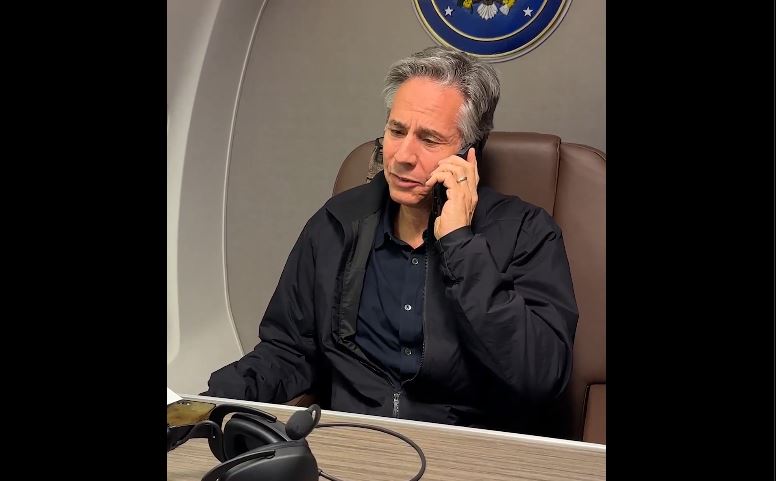Synopsis:
The ongoing conflict between Israel and Hamas has reached a critical juncture as U.S. Secretary of State Antony Blinken urges both parties to resolve remaining issues in the Gaza ceasefire negotiations. Despite significant progress, key disagreements remain, including the status of the Philadelphi Corridor and the exchange of hostages and prisoners. This article delves into the latest developments, the challenges faced in reaching a comprehensive ceasefire, and the broader implications for regional stability.
Overview of the Gaza Ceasefire Negotiations
The Israel-Hamas conflict, a deeply entrenched and multifaceted issue, has once again drawn international attention as negotiations for a ceasefire in Gaza approach a pivotal moment. Recent discussions, led by U.S. Secretary of State Antony Blinken, have highlighted both significant progress and persistent obstacles that must be overcome to achieve a lasting resolution.
The Current Status of the Gaza Ceasefire Deal
U.S. Secretary of State Antony Blinken’s Role in the Ceasefire Negotiations
On September 5, 2024, U.S. Secretary of State Antony Blinken addressed the media, emphasizing the critical role of both Israel and Hamas in finalizing a ceasefire deal. Blinken stated that approximately 90% of the ceasefire agreement had been reached, but several key issues remain unresolved. His comments, made during a briefing in Haiti, underscored the complex nature of the negotiations and the high stakes involved.
Key Issues Hindering the Ceasefire Agreement
The primary obstacles to a comprehensive ceasefire include disagreements over the Philadelphi Corridor—a strategically important area on the Gaza Strip’s southern edge bordering Egypt—and the terms of the exchange for Israeli hostages and Palestinian prisoners. The Philadelphi Corridor has become a focal point of contention, with Hamas rejecting any Israeli military presence and Israel’s Prime Minister Benjamin Netanyahu insisting on maintaining control over the area.
The Philadelphi Corridor Dispute
The Strategic Importance of the Philadelphi Corridor
The Philadelphi Corridor holds significant strategic value for Israel, serving as a buffer zone to prevent smuggling and other security threats. However, Hamas’s rejection of an Israeli presence in this area has become one of the major sticking points in the negotiations. The corridor’s control is crucial not only for security reasons but also for the broader geopolitical dynamics of the region.
International Responses to the Philadelphi Corridor Controversy
This week, Turkey, five Arab countries—including Saudi Arabia—and the Palestinian Authority joined Egypt in opposing Israel’s demand to retain its troops in the Philadelphi Corridor. This united stance reflects a broader regional concern about Israel’s military presence and its implications for the peace process.
Hostage and Prisoner Exchange Negotiations
Challenges in the Hostage and Prisoner Exchange
The exchange of Israeli hostages and Palestinian prisoners is another critical issue in the ceasefire negotiations. Blinken highlighted gaps in the proposed agreement concerning the mechanics of this exchange. The complexity of negotiating such exchanges, involving multiple parties and sensitive issues, has added another layer of difficulty to the negotiations.
Impact of the Hostage Crisis on the Ceasefire
The hostage crisis, which began on October 7, 2023, when Hamas launched a deadly attack on Israel, has significantly impacted the ceasefire discussions. The attack resulted in the deaths of approximately 1,200 Israelis and the capture of around 250 hostages. The ongoing humanitarian crisis in Gaza, with over 40,000 Palestinian casualties and widespread displacement, further complicates the situation.
The Broader Implications for Regional Stability
Potential for Normalization of Relations
Amidst these challenges, Blinken also addressed the potential for normalization between Israel and Saudi Arabia. He suggested that achieving a ceasefire in Gaza could create opportunities for improved relations between the two nations. This development would have significant implications for regional stability and diplomatic dynamics.
Humanitarian Crisis and International Involvement
The humanitarian crisis in Gaza, exacerbated by the conflict and the blockade, remains a critical concern. The international community, including the U.S., Qatar, and Egypt, has been actively involved in mediating the ceasefire negotiations. The crisis has led to severe shortages of food, medicine, and other essential supplies, further highlighting the urgency of reaching an agreement.
Conclusion
The ongoing negotiations for a Gaza ceasefire are at a crucial stage, with significant progress tempered by persistent challenges. The resolution of issues related to the Philadelphi Corridor and the exchange of hostages and prisoners will be pivotal in determining the success of the ceasefire agreement. As the international community continues to engage in mediation efforts, the hope is that a comprehensive and lasting resolution can be achieved, bringing relief to the affected populations and contributing to regional stability.
Future Implications
The outcome of the ceasefire negotiations will likely have far-reaching implications for the Israel-Hamas conflict, regional diplomacy, and international relations. Continued efforts by key stakeholders, including the U.S., Qatar, Egypt, and other regional actors, will be essential in navigating the complexities of the situation and working towards a sustainable peace.

Sunil Garnayak is an expert in Indian news with extensive knowledge of the nation’s political, social, and economic landscape and international relations. With years of experience in journalism, Sunil delivers in-depth analysis and accurate reporting that keeps readers informed about the latest developments in India. His commitment to factual accuracy and nuanced storytelling ensures that his articles provide valuable insights into the country’s most pressing issues.



